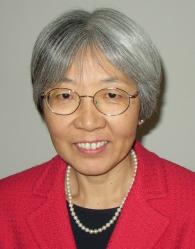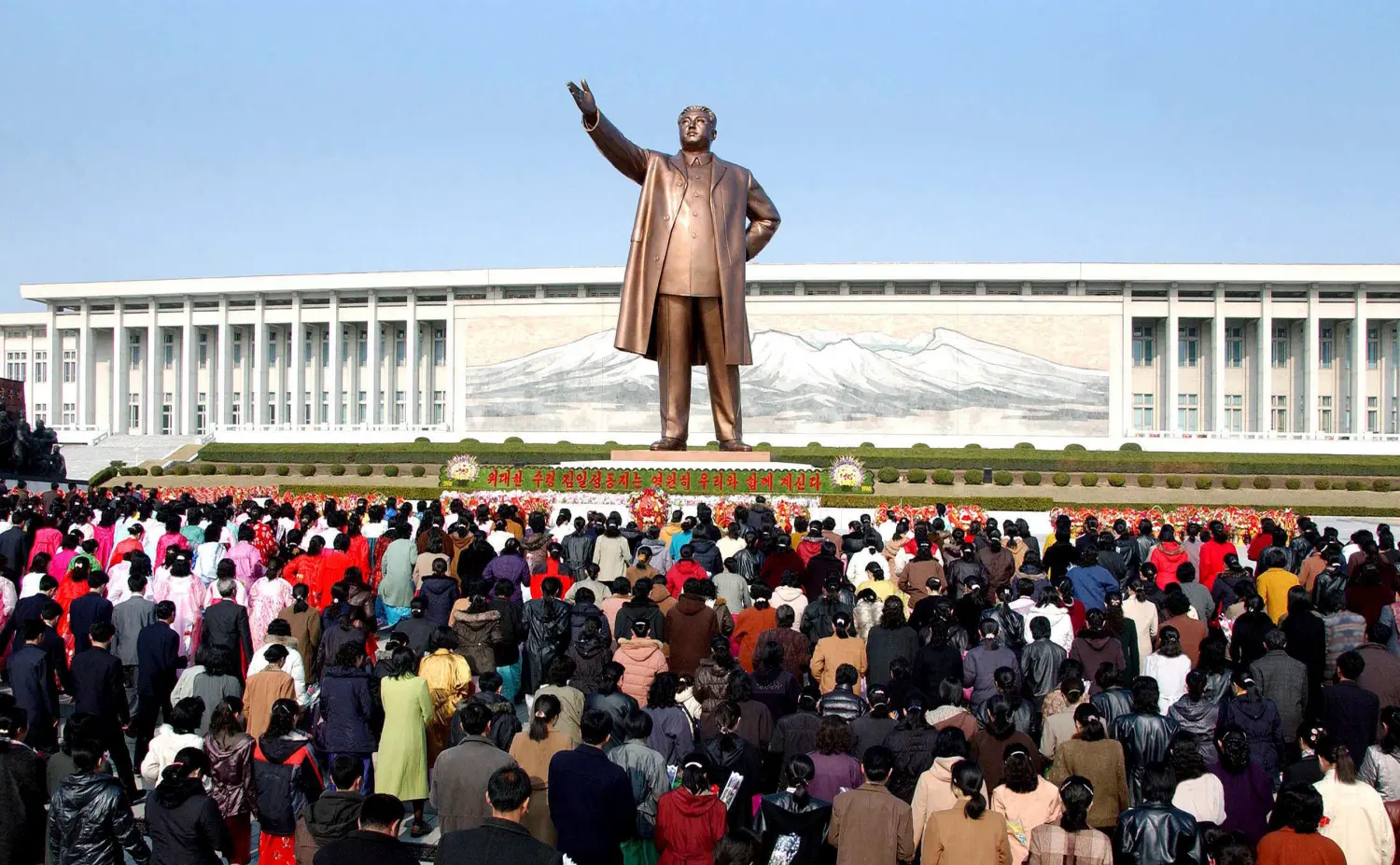A defector’s story
In 2004 I conducted a series of interviews with North Korean defectors who had recently settled in South Korea. My most interesting case was a Ms. Lee, who listed her current employment as “restaurant attendant,” meaning she could be a dishwasher, waiter, or kitchen helper. In North Korea, she had received a vocational college degree in public health and nutrition and worked as a chef at a resort facility for military veterans. South Korea generally does not recognize degrees that are earned in North Korea, because the content and standards of education are very different.
Ms. Lee cautiously entered my hotel suite and looked with keen interest around the room and then at me. Before we began the interview, she asked, “Dr. Oh, were you born in Korea?” I told her that I was born in South Korea after my parents had come down from North Korea. She seemed to be relieved that I wasn’t an American government official and openly shared with me her bitter life story.
She had decided to leave her home town when her husband, recently discharged from the military, was unable to get a job because her younger brother had fled to China. Her husband and his side of the family bitterly complained that his wife’s brother had ruined them—which he probably had, thanks to the North Korean government policy of blacklisting the entire family when one member departs without permission for China. Ms. Lee also discovered that her husband was in a relationship with another woman in the village. So she decided to escape from her uncomfortable home life and go to China to look for her brother.
The biggest problem with this plan was that she had a six year old son, but on one snowy winter day she embarked on her uncertain journey to China. The previous night she had given the boy a warm new sweater and a bag of candy. “Mommy needs to go to Pyongyang to do some errands and will be back soon. Be a nice boy and be good to grandma and daddy until I return.” The innocent boy was too pleased with his presents to mind. “No worries, Mom. I feel like today is my birthday with candy and new clothes.” She had told her husband, “I will leave you so you can report me to the authorities as a “missing person,” whereabouts unknown. Then you can get a job. Please take care of our son when you remarry and ask your new wife to treat him as if he was her child. I will save money to send for him.”
In the early dawn she slipped out of the house. At the last spot on the road where she could look back at her house, she sat down and cried. She managed to get to China and eventually reach South Korea, using her savings and selling her wedding ring. She was now diligently saving up the $5,000 it would cost to hire a broker to retrieve her son.
My first question to Ms. Lee was, “What is the most difficult thing to bear living in South Korea?” “Missing my son, surely. My job at this large Korean restaurant is dish washing, which is not difficult, but what I hate more than anything is that we throw away tons of food, including meat and rice that would be a delicacy in the North. Whenever I throw this food away, I cry thinking of my son, who rarely had a chance to eat meat and rice.” I asked her, “If this work is unbearable, what kind of work do you want to do?” “I would like to work at a coffee shop or tea house where I don’t have to waste meat and rice.”
A few days later, I happened to visit a coffee shop whose owner was a wealthy Korean who had studied in the United States and opened the café in order to meet interesting people. There I met an old friend who happened to be a school friend of the café owner, and the three of us had a good talk. When the owner complained that it was difficult to find a reliable person to manage the café, I remembered my recent interview with Ms. Lee. Ms. Lee, who had a nutrition degree and said she wanted to work in a café! I told the owner that I might be able to find her a good manager. I described Ms. Lee’s qualifications and the owner sounded interested. Then I added, “The only difference between this candidate and others is that she is a North Korean defector.” The owner almost shouted at me, “You must be kidding. Look at our café. The place is filled with valuable porcelains and paintings and antique furniture, and I have a very sophisticated clientele. How can I trust a defector, who may steal things and alienate my customers? Does she even know the difference between latte and espresso?”
On my way to the airport the next morning I received a call from the owner. “I apologize. I’ve been thinking about your candidate and our mutual friend has convinced me that I should interview her for the job.” I thanked her and asked her to give Ms. Lee a fair chance and be patient with her for a month until she could learn the new job. “And please treat her with respect and give her a good salary since she needs to save money to bring her son out of North Korea.”
So Ms. Lee got the job, and a year later when I visited the café I couldn’t recognize her at all. She wore a smart new hairstyle and dressed in a stylish but conservative manner. The owner thanked me profusely. “Since she came here we have more customers and are making more money. Everybody loves her. She is a great asset.” When I talked with Ms. Lee, she was equally satisfied. “I love my job. People are very kind to me. I appreciate my new life in the South these days.”
18,000 defectors and counting
Over 18,000 defectors now live in South Korea, and despite the best efforts of the North Korean and Chinese police, they keep coming at a rate of two to three thousand a year. Most of them are women, who find it easier than men to slip out of North Korea unnoticed and find employment in China while they plot the next move of their escape, which usually takes several years. Once they arrive in South Korea, usually after having trekked across China to Southeast Asia, they are taken in hand by the National Intelligence Service and interviewed for several weeks to determine that they are bonafide refugees and not spies or Chinese-Koreans. They are then sent to the Unification Ministry’s half-way house, Hanawon (“one people”) for three months of social orientation and job training. After they graduate from Hanawon, they are given financial assistance and help in finding housing, and turned loose into South Korean society.
Objectively, their living conditions are much improved over what they were in the North. They needn’t worry about finding food, adequate housing or transportation. They can go wherever they want and associate with whomever they wish. Instead of communist party cadres poking into every aspect of their lives, they have freedom. In fact, many now feel anxious about having too much freedom. One of my interview subjects explained, “During the weekend, I don’t know how to choose among so many things to do. In the North, we had to stay home because we didn’t have money or even physical energy to move around.”
Yet, they feel something is terribly wrong with life in their new society. Especially in the first year, most defectors suffer from a combination of suspiciousness, anxiety, and depression—a reaction that is typical of new immigrants in any society. They badly miss the families they left behind, and feel guilty for having left them at the mercy of officials who will persecute them for having a family member who left the fatherland. Defectors also suffer from a variety of physical complaints caused by their difficult lives in North Korea and by their stressful transitions to South Korean society.
Defectors don’t feel they are fully accepted by their new society. Whenever the media report bad news from North Korea, defectors feel ashamed and guilty about their origins. On a personal level, they suffer from loneliness because it is difficult to make new friends and find romantic partners. Because they speak a different dialect of Korean in which traditional words are used instead of foreign loan words, they are easily identified as North Koreans and usually looked down upon as country bumpkins. As one defector said, “I was a member of the elite cadre circle and now I’m a computer-illiterate senile old man.” And another, “I graduated from a good college but now I’m enrolled in a vocational computer school with youngsters.” And yet another, “I was a relatively wealthy foreign trader for the government but now I drive a pick-up truck and sell vegetables.”
South Korea is a status-oriented, conservative society—as is North Korea, although the status measures are quite different. In the South it’s not what position you hold in the ruling political party that matters but what schools you attended, what degrees you obtained, where you live, where you work, and what your family background is. Defectors bitterly joke that they left one class society in the North and now find that South Korea is equally class conscious, and the defectors are not members of a favored class.
To get ahead in South Korean society, one needs personal connections. Although North Koreans often have extended family members living in the South, they have been completely cut off from them for over 50 years so the relatively wealthy South Korean side of the family often wants nothing to do with them. After they have left the care of the South Korean government, defectors are on their own, and encounter one failure after another. For young defectors, the school dropout rate is high. Those who find full-time employment with a South Korean company usually have to start at the bottom of the ladder, even if they had senior positions in the North, where all official employment is controlled by the government. Former North Koreans in the South typically change jobs every year or two, dissatisfied with their wages and lowly job status. Almost half of them engage in day labor, which offers no job security or future. Many end up being permanently unemployed and living on welfare.
An urgent task
Most South Koreans just don’t want to bother with defectors, although they favor their arrival in principle. They don’t understand the larger issues of cultural acclimation that prevent the defectors from becoming integrated into South Korean society. Christian and social welfare organizations extend a helping hand, and defectors often turn to other defectors and defector groups for assistance and comfort. It is widely recognized that the South Korean government needs to do more for their new citizens, but the government always seems to be playing catch-up.
More of the same programs that are currently in place would improve the situation for defectors. The government already has plans to plans to expand Hanawon, set up local Hanawon centers, and offer more job training to defectors. Hiring incentives, especially for small businesses who have trouble finding employees, may be expanded. But as Park Jin, the chairman of the South Korean National Assembly’s Foreign Affairs, Trade, and Unification Committee has noted, “The settlement of North Korean defectors in the South is not something that money alone can accomplish.”
When cultures meet, they often clash. South and North Korean cultures have been diverging for over half a century, and it will take a long time for them to blend. For South Korea’s government and people, the bigger question is whether they should continue to offer a measure of support to the North Korean regime in the hope that it will gradually relax its hold over the people and allow them to become acquainted with South Korean culture and capitalism, or whether South Korea should work for the early collapse of North Korea so that cultural assimilation can begin sooner rather than later.
Korean unification is the greatest national task for South Korea. Some day, perhaps years or decades in the future, the 23 million people in the North will join the 46 million citizens of the South under one government. However, unless the South Korean government and people learn how to deal with the several thousand defectors each year participating in what Assemblyman Park Jin has called “small unification,” national unification will be unimaginably difficult.
The Brookings Institution is committed to quality, independence, and impact.
We are supported by a diverse array of funders. In line with our values and policies, each Brookings publication represents the sole views of its author(s).




